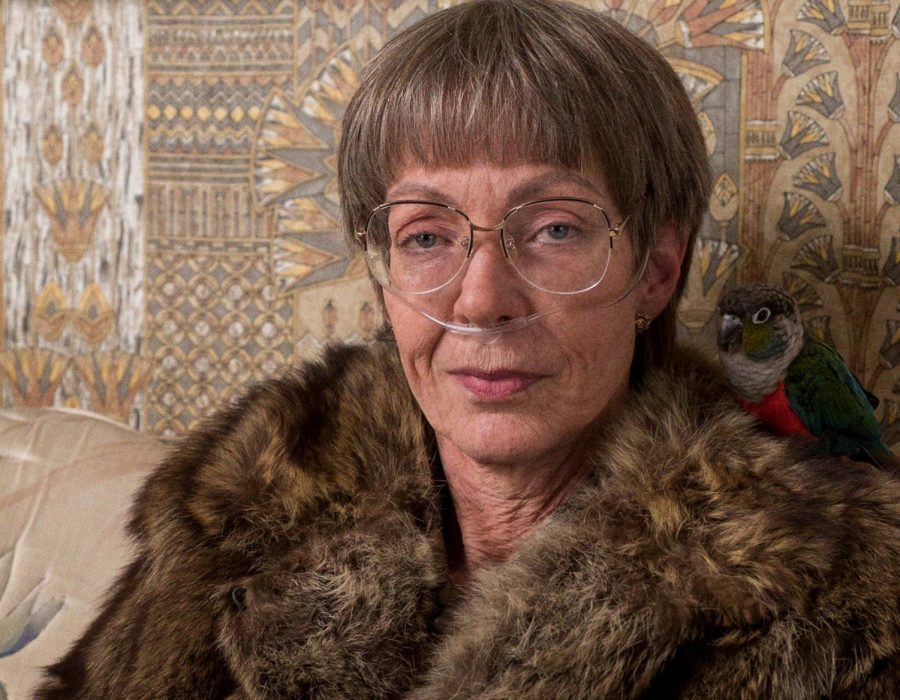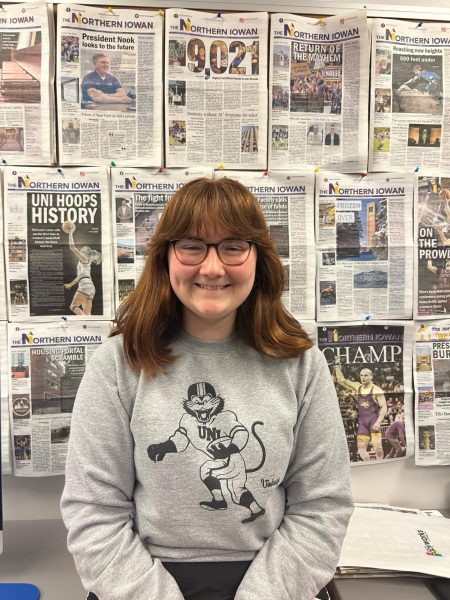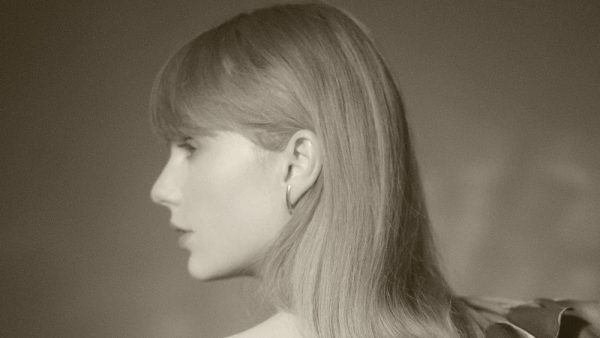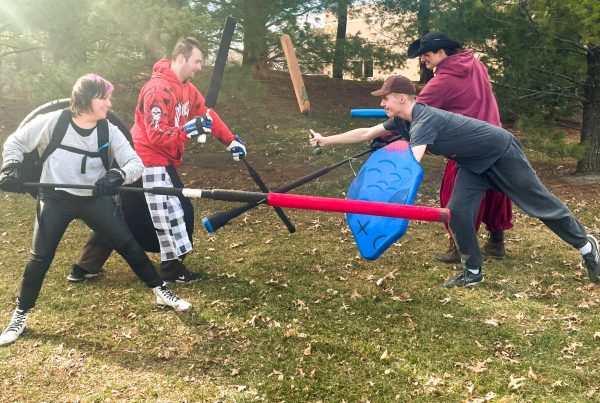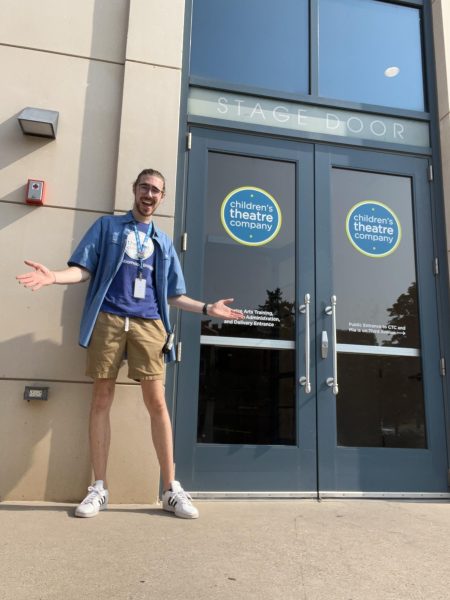Olympic biopic is ‘bitingly funny’
“I, Tonya” features Allison Janney as the mother of Tonya Harding, a role that won her a Golden Globe. The film has a 90 percent approval rating on Rotten Tomatoes.
Feb 15, 2018
On Jan. 6, 1994, the sports world was forever changed when U.S. Olympic figure skater Nancy Kerrigan was viciously attacked by a lone assailant just one month before the 1994 Olympic Games. The incident resulted in a media frenzy, which later revealed that the assailant had been hired by the ex-husband of Kerrigan’s main team competitor, Tonya Harding.
To this day, Harding has remained a controversial figure in the world of sports, as well as a target for ridicule in society at large.
Harding’s outlandish story serves as the inspiration for “I, Tonya,” the new Oscar-nominated biopic that attempts to tell the untold story behind the scorned skater’s notorious life in the spotlight.
And yes, while the incident in question (and all the controversy that surrounded it) certainly plays a major role in the film, “I, Tonya” ultimately offers a surprisingly fully formed depiction of the troubled Harding (Margot Robbie) by focusing in on her childhood and upbringing.
By deftly blending black comedy with unexpected moments of raw vulnerability, “I, Tonya” succeeds as a multi-layered biopic that, while occasionally uneven, serves to both enlighten and entertain.
Directing: 4/5
“I, Tonya” is directed by Craig Gillespie, who, while not a household name, leaves his directorial mark on the film through an eclectic mix of subjective POV shots and static, talking head interviews.
Gillespie structures his film as a mockumentary, meaning that the central story of Harding’s rise and fall in the mid-90s is frequently truncated with commentary from “modern day” interviews.
Now, while this unique narrative structure does result in some occasionally awkward tonal shifts, the result is largely successful in purely cinematic terms.
In other words, Gillespie’s decision to purposefully punctuate his film with brief, fourth wall-breaking interludes creates a visual dynamism that constantly keeps the audience guessing.
Best of all, Gillespie is so intent on achieving the desired “mockumentary” effect that he even switches from the commonly accepted widescreen aspect ratio to the square-like shape of the old Academy ratio during the film’s interview segments.
As for the main storyline, “I, Tonya” benefits from some truly beautiful camerawork — most notably, in many of Harding’s extended skating sequences. Quite often, Gillespie’s camera will seamlessly glide around the ice, following Robbie with a complex series of pans, tilts and tracking shots.
Writing: 4/5
Again, given its adherence to the inherently subversive mockumentary form, Gillespie’s movie can often come across as parodic and satirical. To be sure, “I, Tonya” is a bitingly funny film, as its tonal elements often resemble that of Rob Reiner’s influential “This is Spinal Tap” or the highly successful sitcoms “The Office” and “Parks and Recreation.”
“I, Tonya” benefits from not taking itself too seriously, especially given that the film’s subject matter is simply too ridiculous not to highlight through a comedic lens. Any attempt to turn Harding’s outrageously true story into a proper melodrama would have almost undoubtedly resulted in a one-dimensional, ham-fisted song and dance about tragedy and regret, after all.
Indeed, by injecting some much needed comedy throughout the tragic proceedings, “I, Tonya” achieves a difficult balancing act.
At the surface level, “I, Tonya” succeeds in delivering an uncomfortably funny film populated with peculiar and eccentric characters.
However, “I, Tonya” also strikes a much deeper chord by constructing its tragicomic scenarios around fully developed and sympathetic people. Sure, some of the comedy does come across as too mean-spirited and tonally dissonant, but the end result is still largely successful for eliciting belly laughs while also offering an emotionally resonant climax for star Robbie.
Acting: 4/5
Although “I, Tonya” features capable direction and a scathingly funny script, the film’s greatest asset is certainly its principal actors, each of whom works to turn their respective characters into fully dimensional human beings.
Margot Robbie is particularly terrific in the film’s titular role, transforming Tonya Harding into a surprisingly sympathetic character — all the while, avoiding the pitfalls of mawkish sentimentality that all too often plague many biopics.
Allison Janney is the film’s other standout in her Golden Globe-winning turn as LaVona Fay Golden, Harding’s memorably vitriolic mother. Janney’s comedic timing is a tour de force, as she provides a seemingly endless series of equally cringe-worthy and comical critiques aimed at her daughter.
Finally, Paul Walter Hauser should be commended for turning his ostensibly one-note bodyguard into one of the more memorable characters in the film. Conversely, Sebastian Stan is merely passable as Harding’s ex-husband, who, while pivotal to the film’s core plot, proves to be quite forgettable.
Overall: 4/5
“I, Tonya” is a well-executed biopic that manages to add depth and complexity to one of the most maligned athletes in the history of American sports.
With fully developed characters and a sharply funny script at its center, “I, Tonya” succeeds at delivering a thoroughly entertaining fact-based story without ever needing to skate around its ugliest — and often most revealing — truths.

